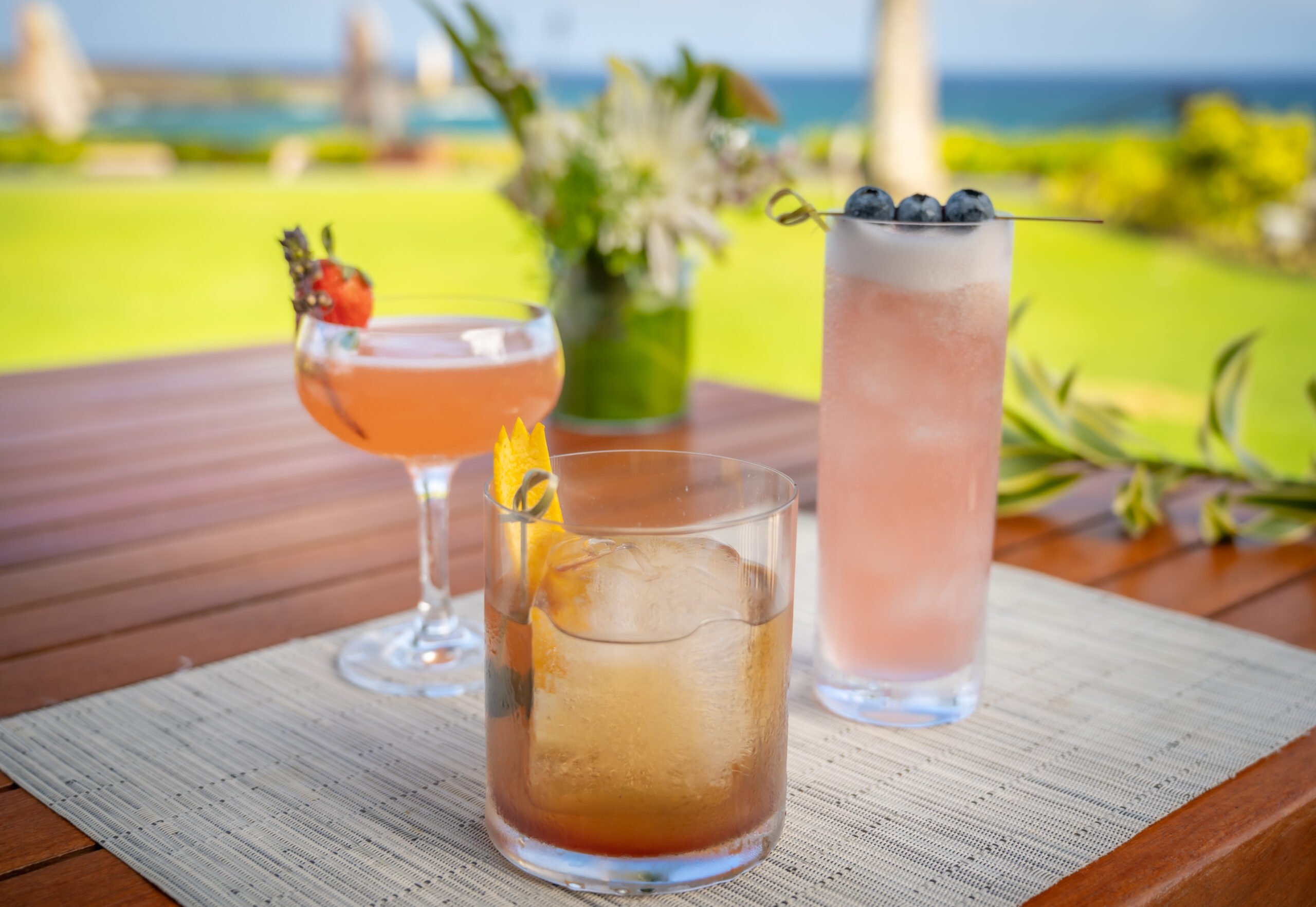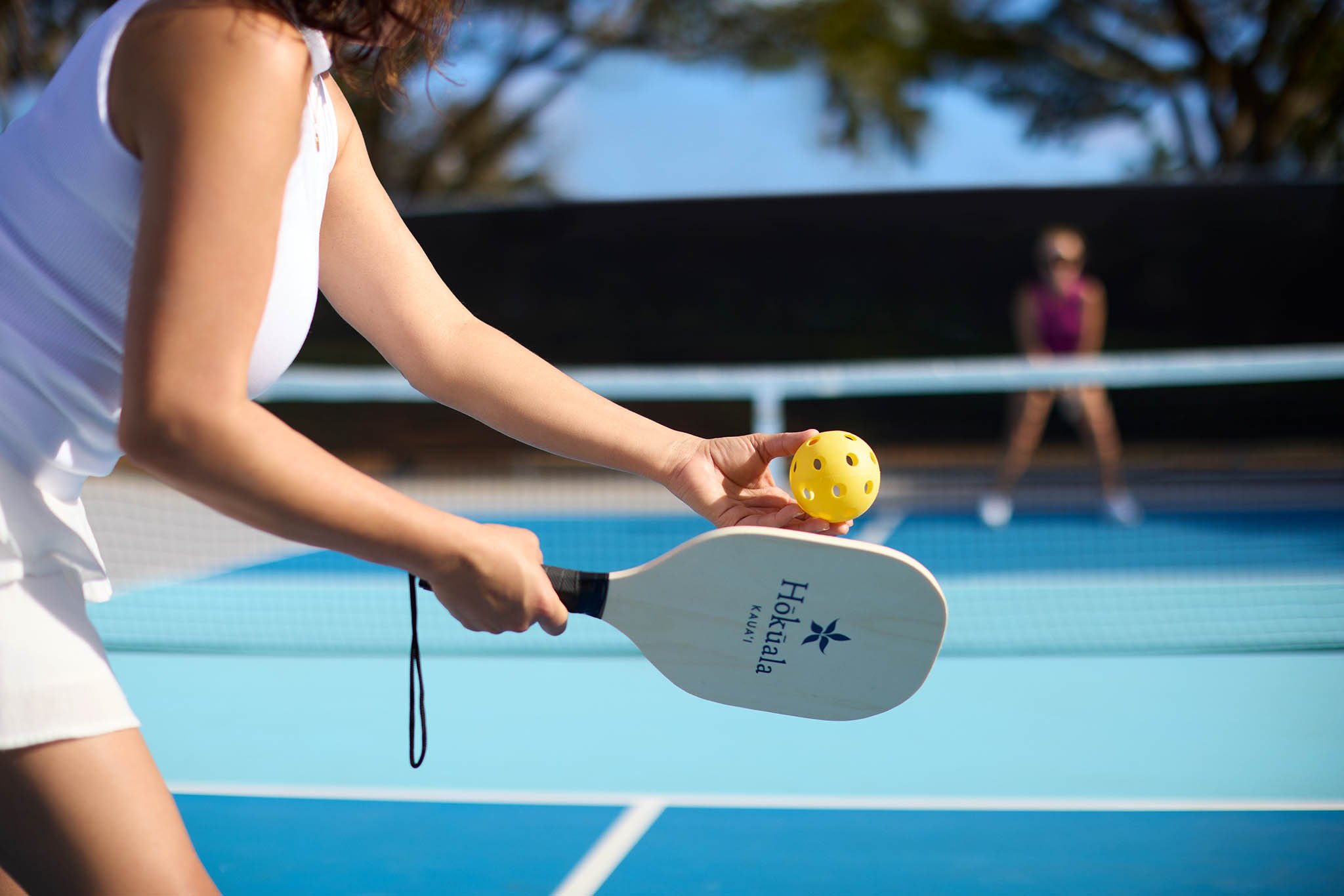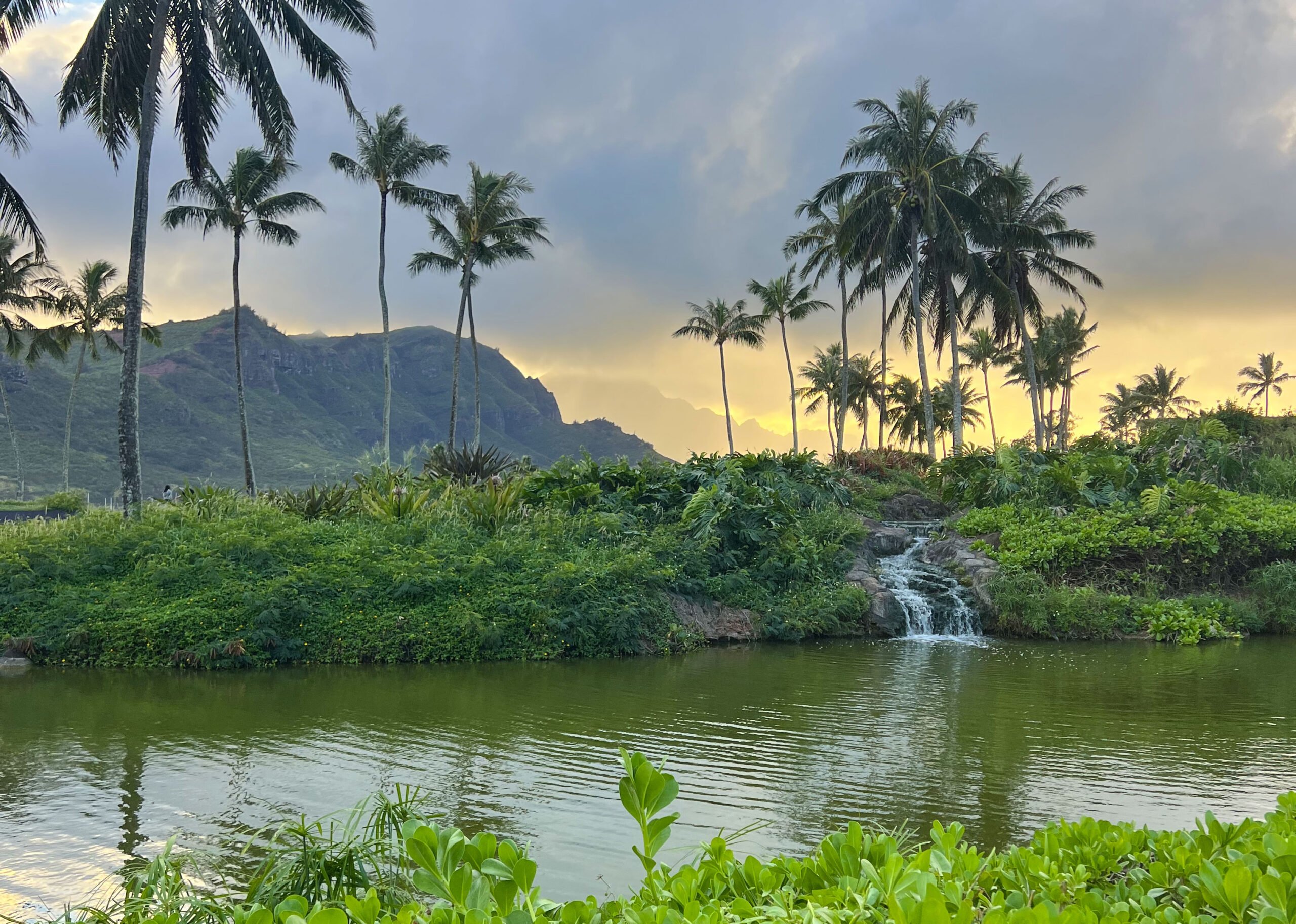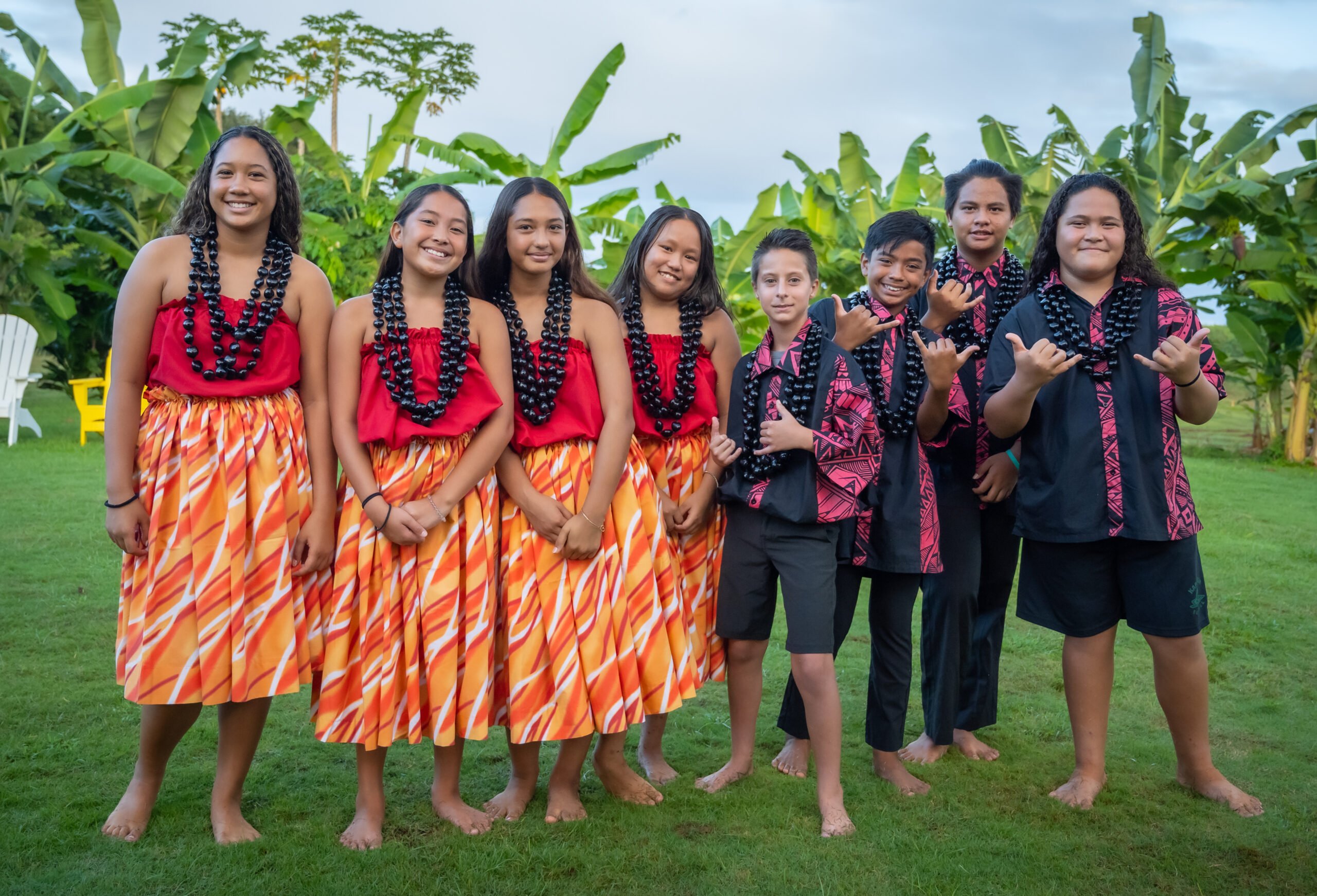Celebrating Polynesian Influence on Hawaiʻi
August 16, 2023
From canoe crop settlers to the cultural cornerstone of the hula, Polynesian settlers have left their mark on the Hawaiian Islands in more ways than one.


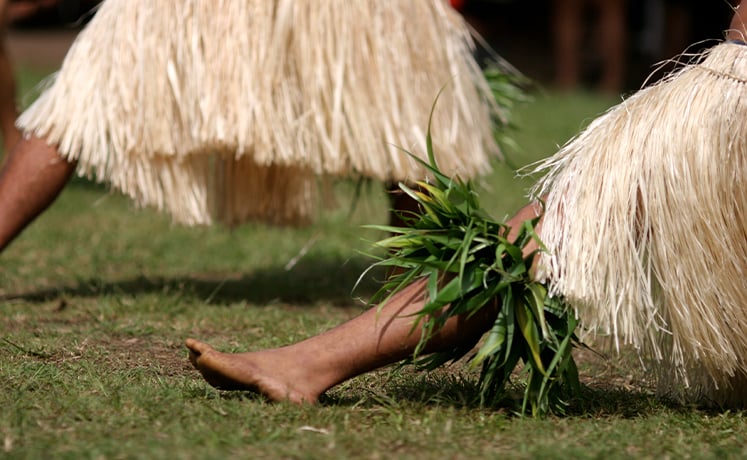
From dashboard hula dancers to grass-skirt clad postcards with Greetings from Hawaiʻi adorned on the front, the essence of hula and the influences of Polynesian dance are ever-present when thinking of Hawaiʻi. Knick knacks aside, the influence of dance on Hawaiian culture is one of storytelling, honoring the land, and remembering those who came before us in this sacred place. Whether it be our brothers and sisters in Samoa, Tahiti, New Zealand, or Hawaiʻi, the heartbeat of culture can be found in dance.
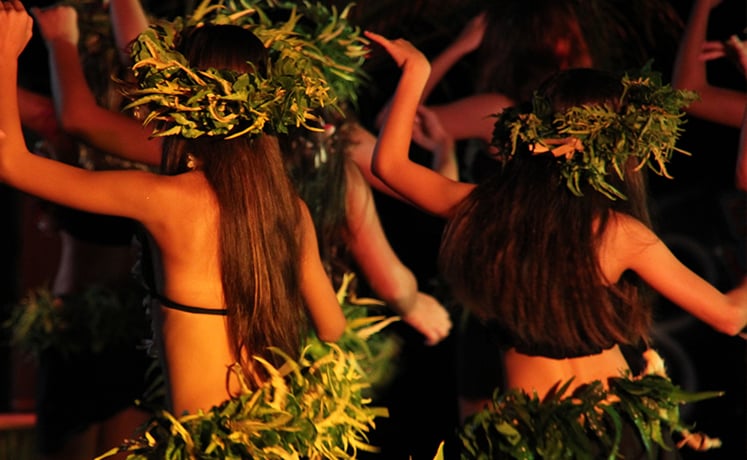

THE HULA
Hawaiʻi’s most popular dance adopted by native Hawaiians to tell their story is known as the hula. Although each island has at one point claimed to be the origin of the hula, its official birthplace dances between man and god depending on who you ask. Some claim that Hawaiian goddess Hiʻiaka’s close friend Hopoe was the first hula dancer, while others call Laka, the Polynesian goddess of navigation, the first to dance the hula. A third suggestion is Kapo, Kapoʻulakīnaʻu, goddess of fertility and sorcery. Regardless of the exact origin, Hawaiʻi has embraced the tradition of hula as a way of storytelling, imagery, and cultural expression. Life cycles of man and of nature are expressed through hula, and sacred milestones are recognized with certain hulas as well. The birth of a child, the new moon, honoring a particular deity — all of these can be expressed through dancing the hula.
Hula performances have become a cultural practice to keep ancient traditions alive and honor the ancestors of Hawaiʻi. The hula is often showcased alongside the Samoan fire dance, Tahitian otea, and Maori haka, although it is traditionally Hawaiian in nature. That said, there are two designations of hula:
Hula kahiko is the more “formal” version, traditionally performed as a ceremony, including an oli (chant) and drums. (Most likely seen at a lūʻau.)
Hula ʻauana is a less formal version of hula, often performed without a specific ceremony, and accompanied by a stringed instrument. (Most likely enjoyed as entertainment, or at a community gathering.)
Enjoying the hula respectfully means understanding the dance as an art and as a way to establish a deeper connection to Hawaiian heritage. Hula dancers train for years under a kumu (hula teacher) before performing in public, and the training is extremely physically demanding. The art of hula is one to be respected, as the sanctity of the dance is ceremonial in purpose, and takes years of practice to master.
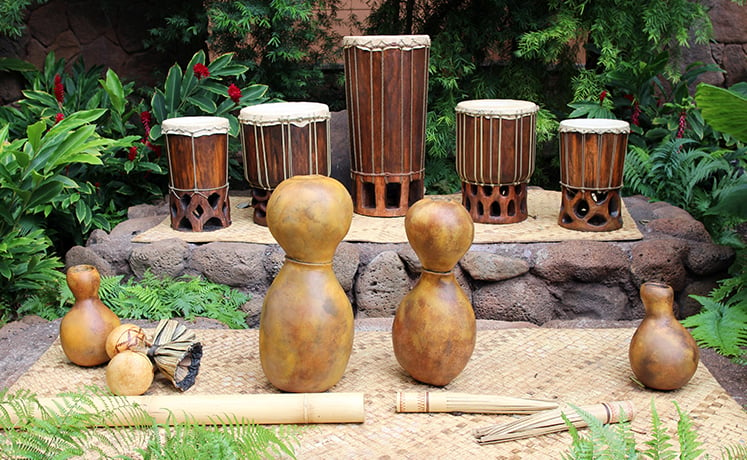
CULTURAL FESTIVALS
Perpetuating Hawaiian culture in conjunction with some of our Polynesian ancestors is such an important piece of understanding Hawaiʻi’s history. There are a number of festivals that allow guests to immerse themselves into the music and movement of the islands.
Merrie Monarch Festival – Hilo, Hawaiʻi
The Merrie Monarch Festival celebrated 60 years in 2023, and is best known as a celebration of cultures through dance. Originally designed to boost the local economy through tourism, this event has grown to be so much more. Now, the festival is organized by a non-profit that honors the legacy of King David Kalākaua, best known for preservation of ancient traditions and the arts.
The festival includes:
- Hōʻike performances
- Miss Aloha Hula competition featuring hula kahiko, hula ʻauana and oli
- Hālau hula group performances
- The Merrie Monarch Royal Parade
The highlight of the festival is a world renowned three-day hula competition featuring some of the best hālau hula (hula school) from Hawaiʻi and the continental United States.
“Just as Kalākaua, the Merrie Monarch, sought to strengthen Hawaiian people through the revitalization of cultural practices, the festival strives to ensure the vibrancy of Hawaiian culture for future generations.”
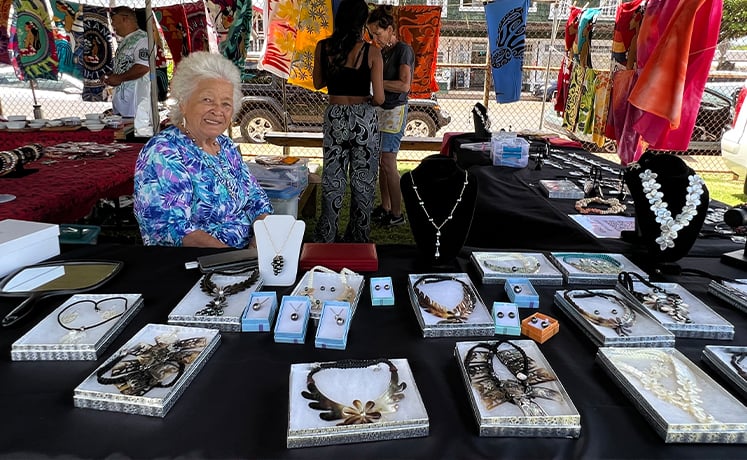

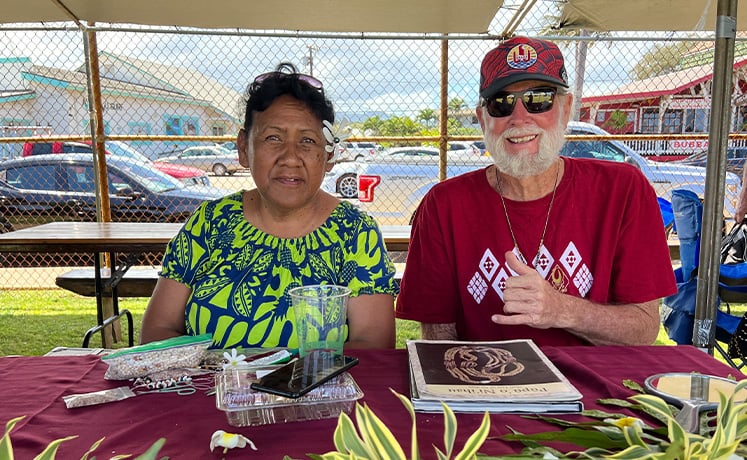
Heiva I Kauaʻi – Kapaʻa – Kauaʻi
Heiva is a month-long celebration of Polynesian dance, culture, food, and traditions. This year’s Kauaʻi-based festival was held in early August and featured group and solo dance competitions accompanied by traditional Tahitian drumming, songs, clothing, and storytelling. Vendors often bring an artistic expression of culture by integrating jewelry and crafts inspired by Tahitian culture. Vibrant colorful pareo (wrap sarongs) and intricately carved toʻere and other percussion instruments directly from Tahiti are offered for sale. At this year’s festival, a melting pot of Pacifica jewelry included the use of Tahitian pearls and Niʻihau shells representing the melding of cultures and a celebration of tradition.
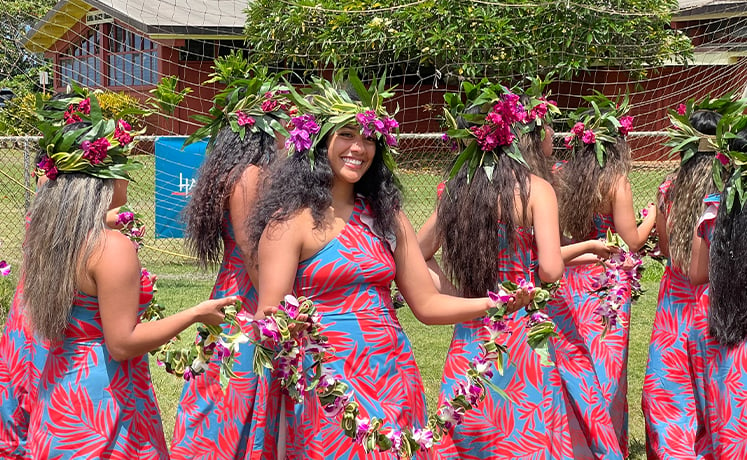
Make Music & Mele and Lei – Hōkūala – Kauaʻi
Launched in 1982 in France as the Fête de la Musique, Make Music Day is celebrated on the same day on the summer solstice on June 21st, in more than 1,000 cities in 120 countries around the world. This year, we had the pleasure of hosting Make Music Day with a special Mele & Lei event at our own Hualani’s oceanfront restaurant with local musicians, artisans, fresh lei and leihulu, and beautiful hula performances. Fragrant plumeria leis, intricately woven ti-leaf and an array of beautiful flower leis were offered by Hālau Ka Lei Mokihana o Leinā’ala to raise funds for a young local girl to travel to Oahʻu to represent the halau in the Miss Keiki Hula Competition, and she won! Congratulations Kahena!
The passing on of oral stories from generation to generation is a tradition at the heart of the islands. As the movements of dance have evolved over the centuries, dancers have been able to tell these stories as not only accompaniments to oral storytelling, but as a physical medium to express those narratives in a wordless manner.

Interested in experiencing a lūʻau for yourself? There are several venues across Kauaʻi to enjoy this part of the culture:
ʻAuliʻi Lūʻau at the Sheraton Kauaʻi Resort and Spa
Grand Hyatt Kauaʻi Lūʻau at the Grand Hyatt Kauaʻi Resort
Smith Family Garden Lūʻau in Kapaʻa
Lūʻau Kalamakū in the historic Kilohana Plantation
Don’t hesitate to reach out to our concierge for upcoming hula lesson opportunities here at Timbers Kaua‘i or additional opportunities on how to support the local arts.


